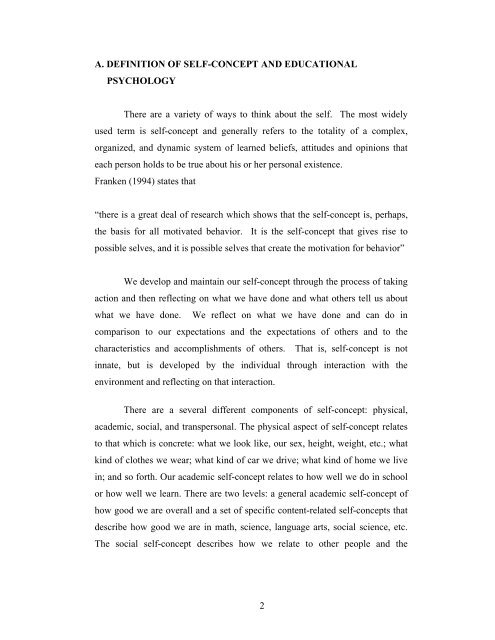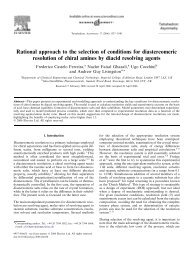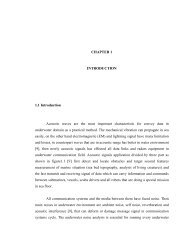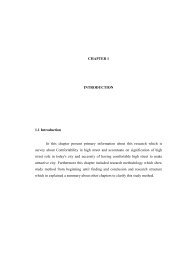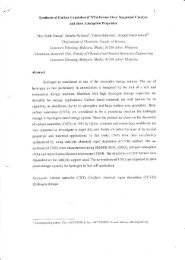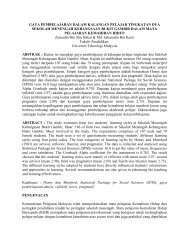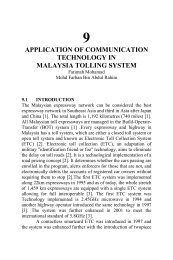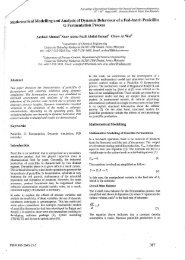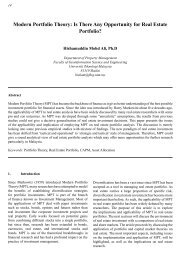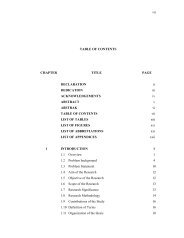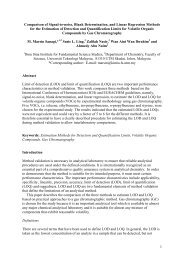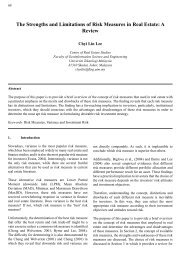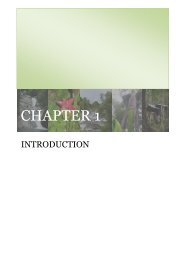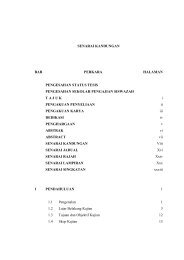SELF-CONCEPT IN EDUCATIONAL PSYCHOLOGY Assoc.Prof. Dr ...
SELF-CONCEPT IN EDUCATIONAL PSYCHOLOGY Assoc.Prof. Dr ...
SELF-CONCEPT IN EDUCATIONAL PSYCHOLOGY Assoc.Prof. Dr ...
You also want an ePaper? Increase the reach of your titles
YUMPU automatically turns print PDFs into web optimized ePapers that Google loves.
A. DEF<strong>IN</strong>ITION OF <strong>SELF</strong>-<strong>CONCEPT</strong> AND <strong>EDUCATIONAL</strong><br />
<strong>PSYCHOLOGY</strong><br />
There are a variety of ways to think about the self. The most widely<br />
used term is self-concept and generally refers to the totality of a complex,<br />
organized, and dynamic system of learned beliefs, attitudes and opinions that<br />
each person holds to be true about his or her personal existence.<br />
Franken (1994) states that<br />
“there is a great deal of research which shows that the self-concept is, perhaps,<br />
the basis for all motivated behavior. It is the self-concept that gives rise to<br />
possible selves, and it is possible selves that create the motivation for behavior”<br />
We develop and maintain our self-concept through the process of taking<br />
action and then reflecting on what we have done and what others tell us about<br />
what we have done. We reflect on what we have done and can do in<br />
comparison to our expectations and the expectations of others and to the<br />
characteristics and accomplishments of others. That is, self-concept is not<br />
innate, but is developed by the individual through interaction with the<br />
environment and reflecting on that interaction.<br />
There are a several different components of self-concept: physical,<br />
academic, social, and transpersonal. The physical aspect of self-concept relates<br />
to that which is concrete: what we look like, our sex, height, weight, etc.; what<br />
kind of clothes we wear; what kind of car we drive; what kind of home we live<br />
in; and so forth. Our academic self-concept relates to how well we do in school<br />
or how well we learn. There are two levels: a general academic self-concept of<br />
how good we are overall and a set of specific content-related self-concepts that<br />
describe how good we are in math, science, language arts, social science, etc.<br />
The social self-concept describes how we relate to other people and the<br />
2


